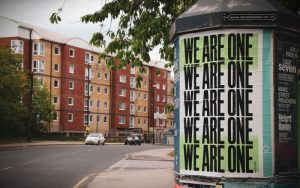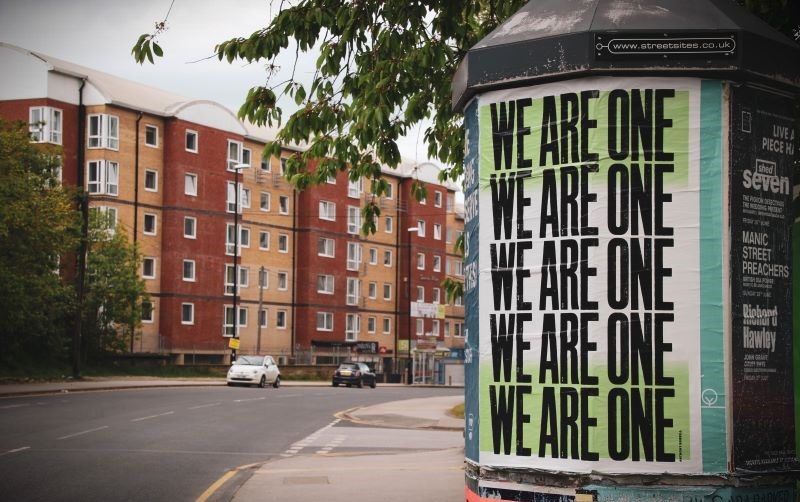
This week’s parsha of Yisro contains our arrival at the wilderness of Sinai followed by the climactic revelation at Mount Sinai.
On the third month of Bnei Yisroel {the Children Of Israel} leaving Mitzrayim {Egypt}, on this day they came to the wilderness of Sinai. And they traveled from Refidim and they came to Midbar Sinai {the wilderness of Sinai}, va’yachanu {and they camped} in the wilderness. Va’yichan Yisroel {and Yisroel camped} across from the mountain. [19:1-2]
These passukim {verses} seem to be quite out of order and redundant. Firstly, shouldn’t it have told us of the departure from Refidim before telling us of the arrival at Midbar Sinai {the Sinai wilderness}?
The Ohr HaChaim explains in a beautiful fashion. THIS was the moment that all have been waiting for. Since the time of creation, Hashem, the Torah and the entire world stretching from the spiritual realms down to the physical realms, have been waiting in anticipation for this very purpose of the world to be realized. When will Hashem’s children come to Midbar Sinai to receive the Torah? When, at last, it did happen, the Torah didn’t, so to speak, waste a second! They came to Midbar Sinai! They made it! That having been said, the Torah only then revealed the details of how they got there. They traveled from Refidim and came to.
The Kli Yakar points out that the passuk seems to be redundant. All that needed to be said was: They left Refidim and camped in Midbar Sinai across from the mountain.
He explains that the passuk is not merely teaching the stages of physical travel; rather it is revealing the spiritual odyssey that needed to be navigated before we could actually receive the Torah.
Refidim was a place where there was strife and arguments amongst Bnei Yisroel. This led to a situation of ‘raff yadayim {the hands became weak}’ in their ability to receive the Torah. Bnei Yisroel needed to travel, to extricate themselves from this state of Refidim, and to arrive at Midbar Sinai.
The desire for honor and power lies at the root of strife and arguments. Arriving at the wilderness of Sinai and seeing the low, humble mountain Hashem had chosen to speak from brought out a sense of humility in Bnei Yisroel. This led to the shalom {peace and brotherhood} that they needed between them. All along they were being referred to in the plural due to their lack of unity–They traveled from Refidim, they came to Midbar Sinai, they camped in the wilderness. However, once they reached the mountain, the passuk says: va’yichan Yisroel. Yisroel, in the singular, camped across from the mountain. In the words of the Sages: K’ish echad b’lev echad–Like one man with one heart.
In order to receive the Torah–to clearly perceive the presence of Hashem and hear Him proclaim: I am Hashem your G-d–there had to be absolute unity. K’ish echad b’lev echad.
The Nesivos Sholom, based on the Zohar, explains that the letters of the Torah correspond to the souls of Israel. The receiving of the Torah was a wedding, a unity between Hashem and Bnei Yisroel. Just as a Torah that is missing a single letter is rendered invalid, had a single member of Yisroel not been there ready to receive the Torah, the wedding would not have taken place. Furthermore, just as a Torah which contains all of the letters but has spaces between them is rendered invalid, so too if there would have been a ‘distance’ between the members of Bnei Yisroel, if they weren’t in a state of k’ish echad b’lev echad, then the Torah could not have been given.
The Sabbath prayers state: He is our G-d, He is our Father, He is our King, He is our Savior and He, in His mercy, will let us hear a second time, in the presence of all living (His promise) to be for you a G-d: I am Hashem your G-d! [Kedusha Musaf].
In order to realistically aspire for that, we must leave Refidim and come to unity. K’ish echad b’lev echad.
The story is told [In the Footsteps of the Maggid] of a woman, living in Eretz Yisroel {the land of Israel} during a very difficult financial period. Jobs were scarce, evidenced by the fact that both her husband and her brother were out of work. Though she felt very fortunate that she was gainfully employed, she was concerned about her future. Expecting her first child in three months she was unsure if her job would still be there when she’d be ready to return.
One afternoon, the employer was having an informal lunch with the employees with the conversation drifting from one topic to the next. She brought up her predicament at home and voiced her concerns about the future. Unwilling to commit himself, the employer gracefully sidestepped the issue and the conversation turned to past histories and families.
When she mentioned the neighborhood that her family was from, he turned to her suddenly, wanting to know exactly when they had lived there. Though she was somewhat unsure, he tried to jump start her memory, searching for all and any details about her parents, grandparents, their professions and where they prayed. He then suddenly left the room, later returning with eyes red from tears and told the following story.
Many years ago, two electricians lived in the same neighborhood. One, a union member, was quite successful, while the other, a non-union man, barely scraped by on odd jobs. The two men prayed at the same synagogue and were somewhat friendly but the families hardly knew each other.
One day, the non-union electrician suffered a massive heart attack and passed away a few days later. The other electrician came to console the mourners and couldn’t help but noticing the impoverished state that the family was in. He asked the widow if she had enough food for the family. Her claim that she did was contradicted by the empty refrigerator and cupboards.
That afternoon, he bought enough food to fill the fridge and some of the cabinets. Each day of the mourning period he arrived and added to the supply of food, even as the widow half-heartedly tried to dissuade him.
Almost two months after her husband had passed away, the widow called the electrician. Her basement was filled with electrical materials for which she had no use. For a hundred dollars I’ll sell you whatever is down there, she offered.
The next evening, the electrician came to her house and began to work in the basement. For three weeks he spent his evenings sorting, organizing and arranging all of the various electrical paraphernalia that had accumulated over the years.
He then called all of the electricians and carpenters he knew, informing them of a sale that would be well worth their while to attend. That sale brought in thousands of dollars, all of which was given to the widow and her family.
As the employer finished telling the story to the spellbound audience, he turned to this woman and said, The union electrician was your grandfather–I was one of the orphans. It was my father who passed away and my mother, my siblings and myself who benefited from your grandfather’s tzidkus {righteousness}.
He paused for a moment and then continued, You will always have a job in my company. Tomorrow morning, if your husband and brother come to my office, I will have jobs for them as well.
K’ish echad b’lev echad. Such a nation will merit to once again hear the words: I am Hashem your G-d!
Good Shabbos,
Yisroel Ciner
Copyright © 2000 by Rabbi Yisroel Ciner and Project Genesis, Inc.
The author teaches at Neveh Tzion in Telzstone (near Yerushalayim).


